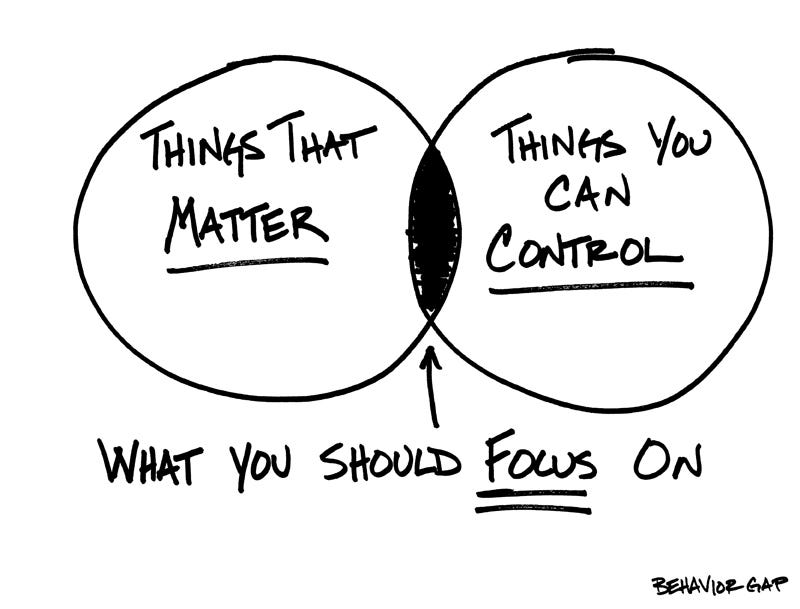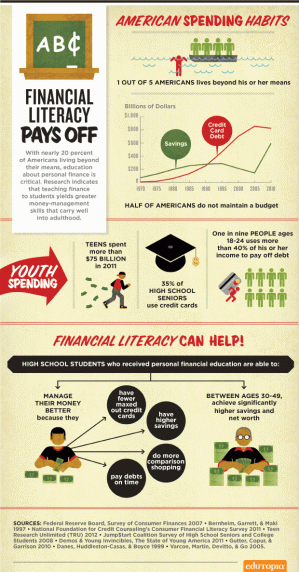It can be frustrating when you’re unable to secure finance for your needs. Whether it’s a business loan, a mortgage, or funding for a personal project, the inability to obtain finance can hinder your goals and aspirations. But have you ever wondered why this happens? What factors contribute to the rejection of finance applications? Understanding the reasons behind this can help you navigate the financial landscape more effectively.
There are several significant aspects that can contribute to your difficulty in obtaining finance. One reason could be a poor credit history, which lenders often consider when evaluating loan applications. Additionally, a high debt-to-income ratio can make lenders hesitant to provide you with finance. It’s also possible that you haven’t provided sufficient collateral or proof of income to secure the loan. By addressing these factors and working on improving your financial standing, you can increase your chances of receiving the finance you need.


Why Am I Being Rejected for Financing?
Understanding the Reasons Behind Repeated Financing Denials
Getting denied for financing can be frustrating and discouraging, especially when you need funds for important expenses. If you’ve been repeatedly turned down for financing, it’s essential to understand the reasons behind these rejections. By identifying the factors that are working against you, you can take proactive steps to improve your financial situation and increase your chances of getting approved in the future.
One of the main reasons why individuals get denied for financing is a poor credit history or low credit score. Lenders typically use credit scores as a way to assess an individual’s creditworthiness. If you have a history of late payments, high levels of debt, or a low credit score, lenders may view you as a higher lending risk, leading to frequent rejections.
Why is it difficult for me to obtain a loan?
When individuals find it challenging to secure a loan, they may wonder why they are facing such difficulties. This article aims to explore the potential reasons behind the struggle many people face in obtaining financial assistance. By identifying these factors, individuals can better understand the obstacles they may encounter and take proactive steps to improve their chances of obtaining a loan.
Some of the common factors that can make it hard for individuals to get a loan include:
- Poor credit history: Having a low credit score or a history of missed payments can significantly impact an individual’s ability to secure a loan. Lenders often consider credit history as an indicator of a person’s financial responsibility and may be hesitant to lend to individuals with a poor credit record.
- Insufficient income: Lenders typically assess an individual’s income level to determine their ability to repay the loan. If the applicant’s income is deemed insufficient to cover loan payments, it can be difficult to get approved.
- High debt-to-income ratio: A high level of existing debt in relation to income can raise concerns for lenders. It may indicate a potential risk of defaulting on loan payments, which could lead to rejection of the loan application.
- Limited collateral: Some loans require collateral as security. If an individual lacks sufficient assets or property to offer as collateral, it may be harder to qualify for such loans.
- Lack of documentation: Proper documentation is crucial when applying for a loan. Failure to provide necessary documents, such as proof of income or identification, can lead to delays or outright rejection of the application.
Understanding these possible reasons why obtaining a loan can be challenging empowers individuals to make informed decisions and take appropriate actions to improve their financial situation. By addressing these factors, such as improving credit scores, increasing income, lowering debt levels, or gathering necessary documentation, individuals can enhance their chances of successfully securing a loan in the future.
Why Can’t I Get Finance?
Many individuals often wonder why they are unable to secure a loan or obtain financial assistance. In this article, we will explore some common reasons why people may face difficulties in getting the finance they need.
Understanding these factors can help individuals improve their financial situations and increase their chances of getting approved for loans in the future. Let’s delve into the possible reasons behind the question, “Why can’t I get finance?”
Why Can’t I Get Finance? Understanding the Reasons for Being Unable to Borrow Money
When it comes to borrowing money, many individuals may find themselves facing difficulties in securing finance. If you have been wondering why you are not able to borrow money, it is important to understand the potential reasons behind this challenge. By gaining insight into the factors that can affect your borrowing ability, you can take appropriate steps to address them and improve your chances of obtaining the financial assistance you need.
There can be several reasons why you are unable to borrow money. One possible factor could be a low credit score, which is a reflection of your creditworthiness. Lenders often assess credit scores to determine the level of risk associated with lending money to an individual. Other factors that could hinder your ability to borrow money may include a high debt-to-income ratio, insufficient collateral, a lack of stable income, or a limited credit history. By identifying these obstacles, you can work towards improving your financial situation and increasing your chances of being approved for a loan.

Why am I unable to secure financing?
Understanding the reasons behind the difficulty in obtaining financing
Exploring potential solutions to overcome financing challenges
How Long Does Refused Credit Stay on File?
When you apply for credit and get rejected, it can be frustrating and confusing. You may wonder why you were denied and how long the record of the refusal will stay on your credit file. Understanding the duration of refused credit on file is essential for managing your financial history and improving your chances of future approval.
Refused credit typically stays on your credit file for a certain period of time, depending on the credit reporting agency and the type of credit you applied for. This information is important for lenders and financial institutions to assess your creditworthiness and make informed decisions about extending credit to you.
Why am I unable to secure a loan despite having good credit?
Why Can’t I Get a Credit Card with a Good Credit Score?
Having a good credit score is usually a positive sign when it comes to financial matters. However, it can be frustrating when you have a good credit score but still can’t get approved for a credit card. In this article, we will explore the possible reasons why you may be facing this issue and provide some insights on how to overcome it.
It is important to understand that while a good credit score is a significant factor, it is not the only consideration when credit card issuers make their approval decisions. There are several other factors that they take into account, including your income, employment history, and existing debt obligations. Let’s delve deeper into some of the reasons why you may be experiencing difficulty in obtaining a credit card despite having a good credit score.
Who Will Provide Me with a Loan When No One Else Will?
Many people find themselves in a situation where they need financial assistance but are unable to obtain a loan from traditional lenders. This can be a frustrating and discouraging experience, leaving individuals wondering why they can’t get the finance they need. If you are in this situation, you may be asking yourself, “Why can’t I get finance?”
The answer to this question can vary depending on individual circumstances, but there are a few common reasons why someone may struggle to secure a loan from traditional sources:
- Poor Credit History: One of the primary factors that lenders consider when evaluating loan applications is the borrower’s credit history. If you have a low credit score or a history of late payments, defaults, or bankruptcies, traditional lenders may view you as a high-risk borrower and decline your loan application.
- Lack of Collateral: Many lenders require borrowers to provide collateral, such as property or vehicles, to secure a loan. If you do not have valuable assets to use as collateral, it can be challenging to meet this requirement and obtain a loan.
- Insufficient Income: Lenders want to ensure that borrowers have a stable source of income to repay the loan. If your income is too low or inconsistent, lenders may be hesitant to approve your loan application.
While these factors can make it difficult to obtain finance from traditional sources, there are alternative options available for individuals in need of a loan. Non-traditional lenders, such as online lenders or specialized financial institutions, may be more willing to provide loans to individuals with less-than-perfect credit or unconventional circumstances. These lenders often have different eligibility criteria and may offer loans with higher interest rates or additional fees.
Why Can’t I Get Finance with Bad Credit?
Having bad credit can make it difficult to secure a loan, but why is this the case? In this article, we will explore the reasons why individuals with bad credit may struggle to obtain financing and discuss potential solutions to this problem.
1. Creditworthiness: Lenders evaluate an individual’s creditworthiness to determine their ability to repay a loan. Bad credit indicates a history of missed payments, defaults, or other negative financial behaviors, which raises concerns for lenders. They view lending to individuals with bad credit as a higher risk, resulting in either loan denials or higher interest rates.
2. Limited Options: With bad credit, individuals are often limited to alternative lenders or specialized lending programs that cater to borrowers with subpar credit scores. These lenders may have stricter criteria or offer loans with higher interest rates and fees. This limited pool of options can make it challenging to find suitable financing.
Why Can’t I Get Approved for a Car Loan?
Getting approved for a car loan can be a frustrating experience, especially if you keep getting rejected. If you find yourself wondering, “Why can’t I get finance?” there could be several reasons why lenders are not approving your car loan application. Understanding these reasons can help you address any issues and increase your chances of getting approved for a car loan.
Here are some possible reasons why you might be having difficulty getting approved for a car loan:
- Poor credit score: Lenders often use credit scores to assess your creditworthiness. If you have a low credit score, it indicates a higher risk for lenders, making it challenging to get approved for a loan.
- Insufficient income: Lenders want to ensure that you have enough income to cover your monthly car loan payments. If your income is too low or unstable, lenders may hesitate to approve your loan.
- High debt-to-income ratio: If you have a significant amount of debt compared to your income, lenders may see you as a high-risk borrower. This can make it difficult to get approved for a car loan.
- Lack of credit history: If you have little or no credit history, lenders may be hesitant to approve your loan since they have no previous borrowing behavior to assess your creditworthiness.
- Previous loan defaults: Having a history of loan defaults or missed payments can significantly impact your credit score and make it challenging to get approved for future loans.
Why Am I Getting Declined for a Loan?
If you’re in need of a loan but keep getting declined, it can be frustrating and disheartening. But understanding the reasons behind these rejections can help you improve your chances of getting approved in the future. In this article, we will explore the common factors that may be contributing to your loan rejections and provide insights on how to overcome them.
When it comes to getting finance, there are several reasons why you may be facing constant rejections. It’s important to note that lenders have specific criteria and requirements that they consider when reviewing loan applications. Here are some possible factors that could be affecting your ability to get approved:
- Poor credit score: Your credit score plays a crucial role in determining your creditworthiness. If you have a low credit score, lenders may see you as a risky borrower and may be hesitant to approve your loan application.
- High debt-to-income ratio: Lenders want to ensure that you have enough income to repay the loan. If your debt-to-income ratio is too high, it indicates that you may have difficulty making your loan payments alongside your existing financial obligations.
- Insufficient income: If your income is too low, lenders may doubt your ability to make timely loan repayments. They want to ensure that you have a stable source of income to support your loan obligations.
- Lack of collateral: Some loans, such as secured loans, require collateral as a form of security for the lender. If you don’t have valuable assets to pledge as collateral, it may limit your loan options and increase the chances of rejection.
Don’t Get Finessed By Your Financial Advisor #Shorts #finance #money
Frequently Asked Questions
Are you wondering why you can’t get finance? Here are some common questions and their answers that may shed some light on the situation.
1. Why is my credit score affecting my ability to get finance?
Your credit score is an important factor that lenders consider when assessing your eligibility for finance. A low credit score may indicate a history of late payments, high levels of debt, or other financial issues. Lenders may view you as a high-risk borrower and prefer not to take on that risk. It’s crucial to maintain a good credit score by paying bills on time and managing debt responsibly.
If you have a poor credit score, it’s still possible to get finance, but you may face higher interest rates or stricter terms. Building a positive credit history over time can improve your chances of obtaining better finance options in the future.
2. How does my income affect my ability to get finance?
Your income plays a significant role in determining your ability to get finance. Lenders assess your income to evaluate your repayment capacity. If you have a stable and sufficient income, lenders are more likely to approve your finance application.
If your income is inconsistent or doesn’t meet the lender’s requirements, it may be challenging to get finance. In such cases, you can explore alternatives like providing additional collateral or getting a co-signer to strengthen your application.
3. Can my employment history affect my chances of getting finance?
Your employment history is another factor that lenders consider when assessing your finance application. It provides them with an understanding of your stability and income consistency. If you have a long and consistent employment history, lenders may view you as a reliable borrower.
However, if you frequently change jobs or have gaps in your employment history, lenders may have concerns about your ability to repay the loan. It’s advisable to maintain a stable job and be prepared to provide additional documentation, such as employment contracts or pay stubs, to support your finance application.
4. Could existing debts impact my ability to secure finance?
Existing debts can certainly affect your ability to get finance. Lenders take into account your debt-to-income ratio, which is the proportion of your income that goes towards existing debts. If your debt load is already high, lenders may be hesitant to provide additional finance as it increases your risk of defaulting.
Managing your debts responsibly and reducing your debt load can improve your chances of getting finance. Paying off outstanding debts or consolidating them into a single loan with more favorable terms can also be beneficial.
5. Are there any alternatives if I can’t get finance from traditional lenders?
If you’re unable to get finance from traditional lenders, there are alternative options available. You can consider approaching online lenders, credit unions, or even peer-to-peer lending platforms. These lenders may have different eligibility criteria and more flexible terms.
Additionally, you can explore options like borrowing from friends or family, using credit cards, or seeking financial assistance from non-profit organizations. It’s essential to carefully evaluate the terms and interest rates of these alternatives before making a decision.

Getting finance can be challenging, but there are several factors that may be contributing to why you are having difficulties. It could be that you have a low credit score, insufficient income, or a high level of existing debt. Lenders often consider these factors when determining whether to approve a loan or credit application.
Additionally, your lack of financial history or a limited credit history could also be a reason why you are struggling to obtain finance. Some lenders prefer to work with individuals who have a proven track record of responsible borrowing and repayment.







